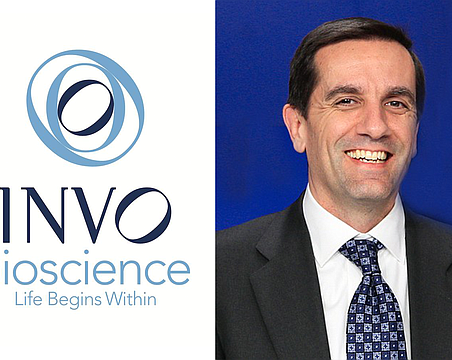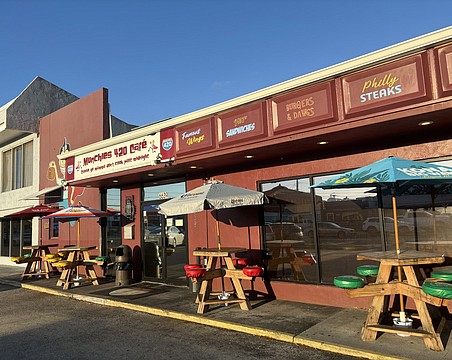Coffee Talk
+ Cabinetmaker
struggles to be busy
In a market full of ominous signs, here's one that screams out as especially gloomy: An executive with Busy Bee Cabinets, a North Port-based cabinetmaker that was named manufacturer of the year in 2006 by the Economic Development Corp. of Sarasota County, opened a recent interview by saying the company "still has solvency."
"For which we feel very lucky," adds Thomas Brooks, Busy Bee's office and sales manager.
Busy Bee, which founder Matt Uebelacker started in the bedroom of his one-bedroom Charlotte County house in 1981 and built to $12 million in revenues in 2006, is in full crisis mode. It has laid off more than half of its staff in the past year, going from about 100 to less than 40 employees, with some sales staff cuts coming as recently as late last month. Revenues just topped $6 million last year, a 50% drop from 2006. And monthly sales are off another 70% in the first three months of 2008, Brooks tells Coffee Talk.
But the company is trying to show some of the grit a 22-year-old Uebelacker displayed when he spent his and his wife's $6,000 life savings on the startup more than two decades ago. The key is in a strategy transformation, as the company goes from one that worked on large-scale projects for new home construction to one focusing on individual clients seeking cabinets for a refurbished kitchen or bathroom.
Says Brooks: "We are a brand new company that's been around for 26 years."
As such, Uebelacker and Brooks decided to spend money like a new company would to get the message out. So far, the company has sent out mailers promoting the business' new focus, which Brooks says has generated "zero response." It has taken out 30-second cable TV ads, too.
However, the company's biggest expense occurred late last year, when it spent about $350,000 to remake its showroom in its south Sarasota headquarters. What once held just a few displays of basic products, meant mostly for construction crews and contractors, is now a polished, refined showroom.
Potential customers can look at and touch seven varieties of products, as well as watch videos of the cabinets on 21-inch flat screen TV monitors. Busy Bee is going after customers who shop around for cabinets, a demographic that usually compares prices at places such as Home Depot and Lowe's.
The trick is to get the potential buyers to commit to a purchase, which has been a tough sell, says Brooks. The success ratio is worse than one out of 50 clients and the ones that do commit try to bargain hard on price and payment plan options.
And if Brooks' solvency comment wasn't ominous enough, there's this: Despite the transformation, which at best is described as a work in progress, the short-term future is still bleak.
"We are not at the bottom," says Brooks. "Our sales are still dropping."
+ Rue Education
pursues nursing solutions
There is a problem getting enough registered nurses on the Gulf Coast and throughout the country.
But the problem isn't a lack of interest. Nor has the shortage been caused by disillusioned or aging nurses leaving the profession for other fields.
The problem is a lack of teachers. It has created waiting lists at nursing schools.
A Clearwater company, Rue Education, which provides independent study systems for nurses, is trying to solve the problem by establishing the National Education Alliance, a partnership among colleges, universities, hospitals, businesses and health care associations to provide grants, scholarships and endowments that make nursing degree programs more accessible for allied health professionals.
The broader economic issue with an impact on business owners and managers is that as nurses continue to be at a premium, health care costs will continue to rise as their salaries escalate and as health care providers are forced to bring in nursing staff at higher rates. So there is a direct line from nursing shortage to health care costs.
"The average age of a nursing instructor is 58," Josh Williams, Rue's senior vice president of community relations, told Coffee Talk. "In five years, we're going to have a more serious problem: More nursing educators retiring, a tighter bottleneck."
+ The Vineyards:
Naples no-drop zone
You'll have to forgive prospective homebuyers for feeling shy about signing a contract to buy a new house in Naples these days. After all, who wants to buy a home and have the builder lower the price a few months later?
To clear an inventory of about 95 homes, the developer and builder of a residential community called The Vineyards in Naples is promising buyers that it won't sell homes in its inventory for less money-or they'll get a check for the difference. For now, it's the only builder offering this kind of guarantee in Southwest Florida.
"We think now's the bottom in the marketplace," says Jim Schuetz, vice president of marketing and sales for The Vineyards. Schuetz is betting that the price guarantee will spur hesitant homebuyers to buy homes that range from $500,000 condos to multi-million-dollar custom homes. The price guarantee is only good for newly built homes in its inventory, not homes yet-to-be built.
The 1,375-acre development is approaching build-out in about three years. The Procacci family of Naples has been developing and building homes in The Vineyards for nearly two decades.
+ Thousands of homes,
still an optimist
When more than 50 employees of Lakewood Ranch-based homebuilder Neal Communities gathered recently to celebrate the company's 7,000th home, they got more than a party.
The event was raucous affair, part celebration of the landmark number, part roast of company president Pat Neal, a former two-time State senator whose family has been in the homebuilding business for four generations.
But the day was really an ode to capitalism. Sure, Neal spoke glowing of the company's employees, from the administrative assistants to the landscapers. And especially glowing of the customers of the 7,000th home the company has built since it was founded in 1970, a couple from New York that paid more than $850,000 for the house in the Lakewood Ranch Country Club.
But Neal, a four-time nominee and 2003 and 2005 finalist for the Review's Entrepreneur of the Year Award, also glowingly reaffirmed that his company is a business, too. "We make money," Neal told the crowd, "by selling at a greater component than our costs."
He later added: "To run a business you have to make more profit than loss. I don't mind saying that's important to me."
Despite the joyous occasion, market forces have finally negatively caught up to Neal. February was the first month the company reported a loss in 15 years, even though the company had an increase in sales, primarily from selling lower priced and smaller models in northern Manatee County.
No matter, Neal is just as much of an optimist as he is a capitalist. For instance, several speakers/roasters at the party made a point to say how Neal is so optimistic he showed up at a recent "slow-growth" conference in Sarasota to talk up the benefits to the entire business community of building more homes.
"Pat," says former Manatee County Commissioner Pat Glass, "has been what an optimist is all about."
+ Cape Coral spotlight:
Harmful or helpful?
Does an article in The Wall Street Journal generate home sales, even if the tone is negative?
Coffee Talk asked James Matey, a Cape Coral builder who was featured in a recent story in The Wall Street Journal about Cape Coral titled "Ground Zero for Home Distress."
Matey built a 5,139-square-foot, five-bedroom riverfront house in Cape Coral and listed it for $4.2 million. The asking price now is $2.4 million, which only covers the land and cost of construction. "At this point, we're just dumping it," Matey told the newspaper for its March 28 edition.
A few days after the article appeared, Coffee Talk wondered whether the national publicity had paid off. "I haven't received any response," Matey says. Actually, he got one lowball offer for $800,000, which he turned down.
"Houses are selling now, but that's because they're stealing them," Matey says ruefully.
+ A glimpse inside
Wal-Mart purchasing
It is rare that a small business owner, a vendor or supplier, can gain access to officials from the world's largest retailer, Wal-Mart.
But that's what will happen in Tampa next week.
Wal-Mart and Sam's Club are joining forces with the University of South Florida to host a free "Business to Business" seminar in Tampa Tuesday, April 8, from 10 a.m. to 2 p.m., at the USF Small Business Development Center, 1101 Channelside Drive, in Tampa.
Representatives from Wal-Mart supplier, development, purchasing, leasing and construction divisions will share tips for companies interested in working with Wal-Mart and Sam's Clubs.
Besides meeting local store managers and representatives from the market and regional management teams, participants can present their products to the leadership team that makes actual vendor decisions. Wal-Mart representatives will help determine if companies meet all minimum requirements to conduct business with Wal-Mart and Sam's Club, and will also walk participants through the appropriate steps to apply as a vendor.
The meeting will also provide an opportunity for local business owners to network with each other and potentially build new partnerships or ventures.
In fiscal 2007, Wal-Mart spent $5.71 billion for merchandise and services with 2,844 suppliers in Florida, according to Dun & Bradstreet.
+ Centex bucks trend,
selling new houses
Despite the slowdown in the residential market, Centex Homes sold 77 new houses in 75 days during its recent winter-clearance promotion in four Hillsborough County communities.
Buyers took advantage of reduced prices on single-family inventory homes, townhomes and villas, averaging more than one sale a day, David Ivin, president of Centex Homes' West Florida division told Coffee Talk.
The average sales price was $182,800, with prices ranging from the lowest-priced townhomes at $111,000 up to $300,000 executive residences.
Sales were recorded at Stonebrier in Lutz, Magnolia Park in Brandon, Hawks Point in SouthShore and Southshore Falls in Apollo Beach.
+ Women unite
in commercial real estate
Women long ago smashed the glass ceiling in residential real estate, but men still dominate Southwest Florida's commercial real estate industry.
Now comes the latest chapter of Commercial Real Estate Women that will bring together women in Lee and Collier counties who specialize in commercial real estate. It's the 66th chapter of the organization.
It's a coincidence that CREW's Southwest Florida chapter is starting just as the commercial real estate market is getting more difficult, says Ellen Goldman, a Naples real estate attorney and president of the new chapter. But it's good timing because the group will give women another place to network and make deals.
So far, the chapter has 13 members. They include attorneys, brokers, bankers and architects. For details, visit www.crewnetworkswfl.com.
+ Entrepreneur mom
sells cloth diapers
Amy Carr's daughter Emily couldn't wear disposable diapers because she was allergic to the gell inside them.
After buying cloth diapers on the Internet, Carr, 34, of Clearwater, decided to become an entrepreneur.
Two years ago she got a bank loan and bought Cottontail Baby Inc., a cloth diaper and accessories Internet business from a woman in Charlotte, N.C. In January, Carr opened the first Cottontail Baby store on 762 N. Belcher Road in Clearwater.
She has three employees. More than half of her sales are through her Web site, www.cottontailbaby.com, and she ships nationwide. But store sales are increasing.
"Local sales are definitely picking up," Carr says. The prior owner got two to three Internet sales a day. Carr gets 10 to 12.
Why the interest in cloth diapers? According to Carr, it's because of the increasing interest in the environment, health concerns and cost savings.
Even though cloth diapers require more water use, they are less money than disposables. And the newer waterproof pants for babies are lighter and more breathable, she says.
Carr's advice to other entrepreneurs: Research the product and the market before you take the plunge.
"There were no local cloth diaper stores, whereas there are a ton online," she says.
GULF COAST INVESTMENT
What the data shows: Business-investment taxable sales include store and office equipment, computer shops, machine shops, industrial machinery, hotel and restaurant supplies, transportation equipment, paper and packaging materials, medical and optical supplies, commercial rentals, farm equipment and feed and seed supplies.
What it means: Lee and Collier counties are suffering the most from a drop in business investment, most likely due to the contraction in the housing market. By contrast, the Punta Gorda area saw an increase even though such sales in neighboring counties dwarf it. Cheaper land and lower taxes have spurred developer interest in Charlotte County. Tampa and Sarasota saw smaller declines, in part because of the Tampa Bay region's more-diversified economy.
Forecast: Business investment likely won't recover in Southwest Florida until the residential real estate crisis is resolved, which some experts have said won't be until 2010. Much of the forecast for the Gulf Coast depends on what happens to the broader economy. A prolonged economic downturn in all areas would suppress business investment as business owners conserve cash. A short-lived recession will spur sales again.





